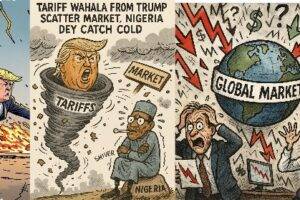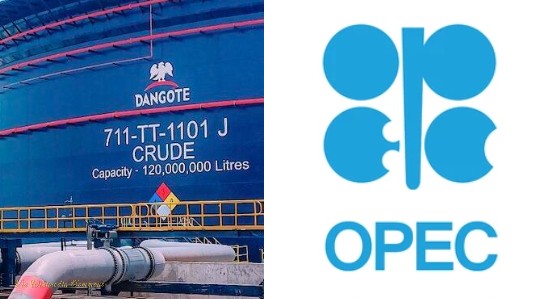The Organisation of the Petroleum Exporting Countries (OPEC) has raised concerns about the increasing petrol production from Nigeria’s Dangote Petroleum Refinery and its potential impact on the European fuel market. In its Monthly Oil Market Report published on January 15, 2025, OPEC highlighted that the refinery’s output could exacerbate Europe’s existing gasoline surplus. However, OPEC has remained notably silent on the impact of countries like Russia and Saudi Arabia, which have been flooding the European market with oil supplies for years.
This perceived double standard has drawn criticism, as the Dangote Refinery’s operations represent a significant milestone for Africa. By producing refined petroleum products domestically and exporting surplus gasoline, Nigeria has begun to reduce its dependence on European imports. This shift has highlighted the disparity in how OPEC addresses market dynamics when African nations, rather than traditional players, contribute to global supply.
Dangote Refinery: Africa’s Game-Changer in Energy Production
Since its inauguration in December 2023, the $20 billion Dangote Refinery has revolutionized Nigeria’s energy sector. With a capacity of 650,000 barrels per day, the refinery has significantly decreased Nigeria’s reliance on imported refined petroleum products, particularly from Europe. This achievement has positioned Nigeria as a key player in the global energy market.
Channels Television earlier reported that by shifting to local production, Nigeria has freed up gasoline that was previously imported from Europe, creating a surplus that has found its way into international markets. While this development has been celebrated as a win for Africa’s economic independence, it has also drawn scrutiny from OPEC, which now warns of potential disruptions to Europe’s market balance.
European Markets’ Longstanding Oversupply Challenges
Europe’s fuel market has been dealing with oversupply issues for years, partly due to sustained exports from Russia and Saudi Arabia. These nations have consistently shipped large volumes of crude oil and refined products to Europe, contributing to high inventory levels in trading hubs such as Amsterdam-Rotterdam-Antwerp (ARA). Despite this, OPEC has largely avoided addressing the impact of these major suppliers on European markets.
In contrast, OPEC’s concerns over Nigeria’s contributions appear to underscore a bias against emerging African energy producers. The growing gasoline surplus in Europe, already worsened by subdued demand and increased adoption of renewable energy, is now conveniently attributed to the Dangote Refinery’s operations, despite the long-standing presence of excess supply from other sources.
Nigerian Oil Marketers’ Strategic Adaptation
Amid these global developments, Nigerian oil marketers have embraced the opportunities presented by the Dangote Refinery’s bulk-purchase agreements. Faced with rising local fuel prices—from N909 to N950 per liter—marketers have turned to the refinery to secure stable and affordable supplies. This move has allowed major downstream operators, such as MRS Oil Nigeria Plc and Ardova Plc, to offer competitive pump prices, benefiting consumers nationwide.
By leveraging the refinery’s capacity, marketers have also reduced their reliance on imports, further challenging the traditional dominance of European suppliers. This shift underscores the transformative potential of African energy producers in reshaping global trade dynamics.
Independent Marketers Strengthen Collaboration
The Independent Petroleum Marketers Association of Nigeria (IPMAN) has encouraged its members to collaborate and pool resources to meet the Dangote Refinery’s minimum bulk-purchase requirement of two million liters at N909 per liter. According to IPMAN’s National President, Alhaji Abubakar Maigandi Garima, this collective strategy allows smaller marketers to bypass traditional depot owners and enjoy stable pricing.
This approach not only empowers independent marketers but also aligns with Nigeria’s broader goal of achieving energy self-sufficiency. By reducing dependency on imported products, IPMAN’s members are actively contributing to the nation’s economic resilience and energy security.
The Need for Balanced Global Trade Policies
The Dangote Refinery’s success in boosting Nigeria’s energy independence has exposed disparities in global trade dynamics. While OPEC raises alarms over Nigeria’s contributions to Europe’s gasoline surplus, it has largely overlooked the roles of Russia and Saudi Arabia in creating the same issues. This selective concern raises questions about equity and fairness in global energy policies.
As African nations like Nigeria emerge as significant players in the global energy market, stakeholders must adopt a balanced approach to trade and policy. The Dangote Refinery’s achievements should be celebrated as a step toward reducing Africa’s reliance on imports and enhancing its position in global trade—not as a threat to established market players.
Table of Contents
Discover more from OGM News NG
Subscribe to get the latest posts sent to your email.














